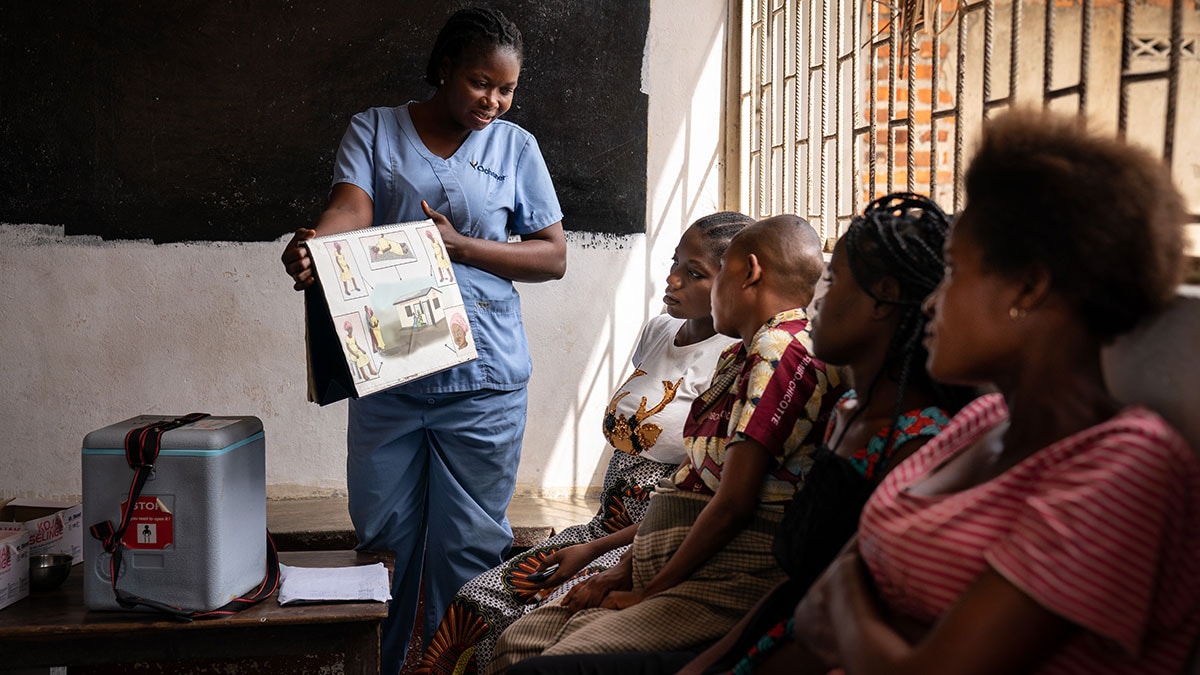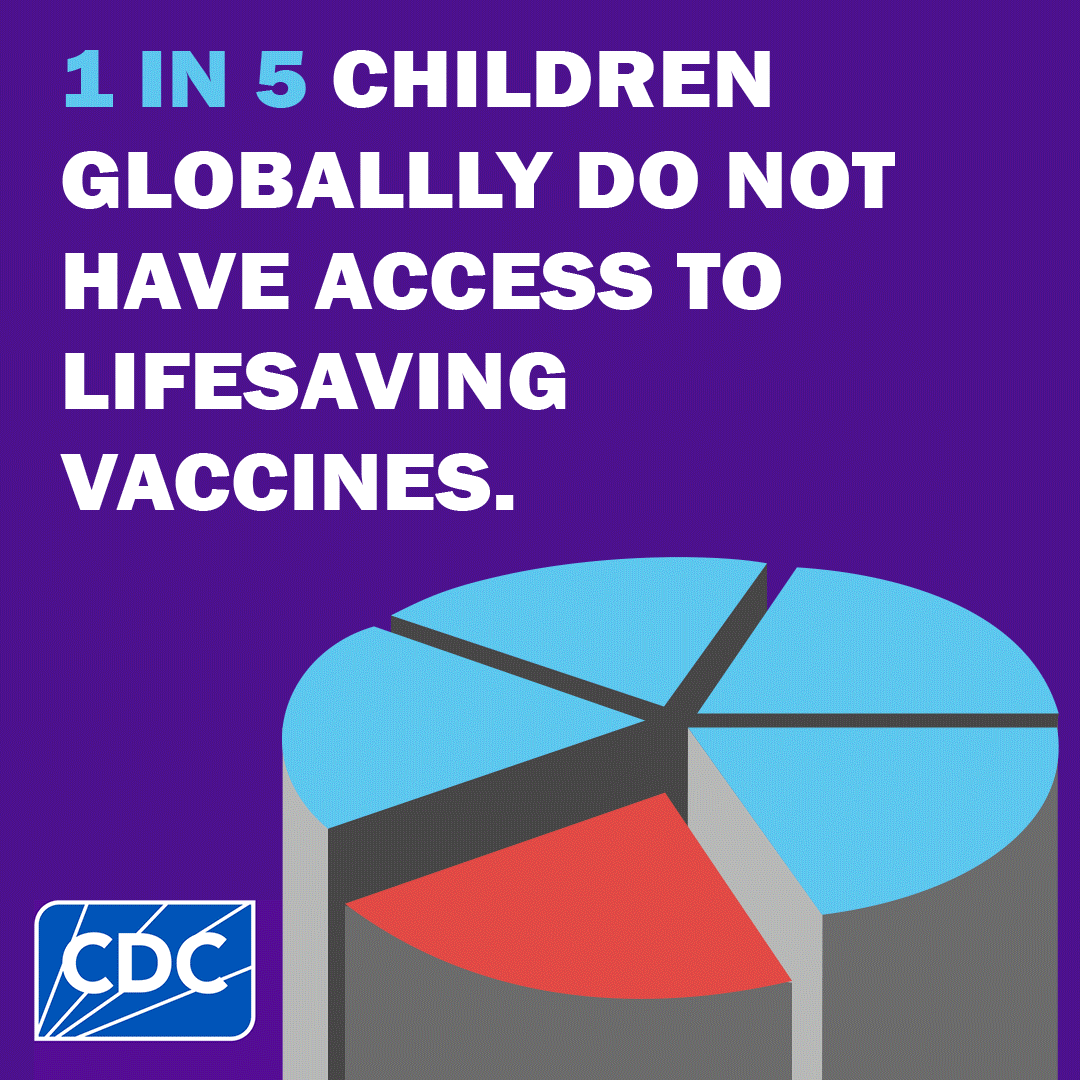Key points
- Immunization prevents deaths worldwide.
- 1 in 5 children globally do not have access to lifesaving vaccines.
- The COVID-19 pandemic disrupted health services and millions of children missed vaccines.

Overview

Vaccination benefits
- More than 50 million deaths can be prevented through immunization between 2021 and 2030.
- By 2030, it is estimated that:
- Measles vaccination can save nearly 19 million lives.
- Hepatitis B vaccination can save 14 million lives.
- Measles vaccination can save nearly 19 million lives.
- By 2030, it is estimated that:
Global vaccine access
In 2023, over 14.5 million children under the age of 1 did not receive basic vaccines (referred to as "zero-dose" children). This is nearly 2.7 million more than in 2019 before the start of the pandemic.
Almost all zero-dose children live in low- and middle-income countries, primarily in Africa and South-East Asia. Over half of these children live in just 10 countries:
- Angola
- Afghanistan
- Democratic Republic of the Congo
- Ethiopia
- India
- Indonesia
- Nigeria
- Pakistan
- Sudan
- Yemen
A best buy for global health
- Each dollar spent on immunization saves $52 in low- and middle-income countries.
- It costs $18 per child to fully immunize children in low-income countries, reduced from over $24 in 2013.
Learn about what CDC is doing to improve health by prioritizing access and delivery of lifesaving vaccines.
